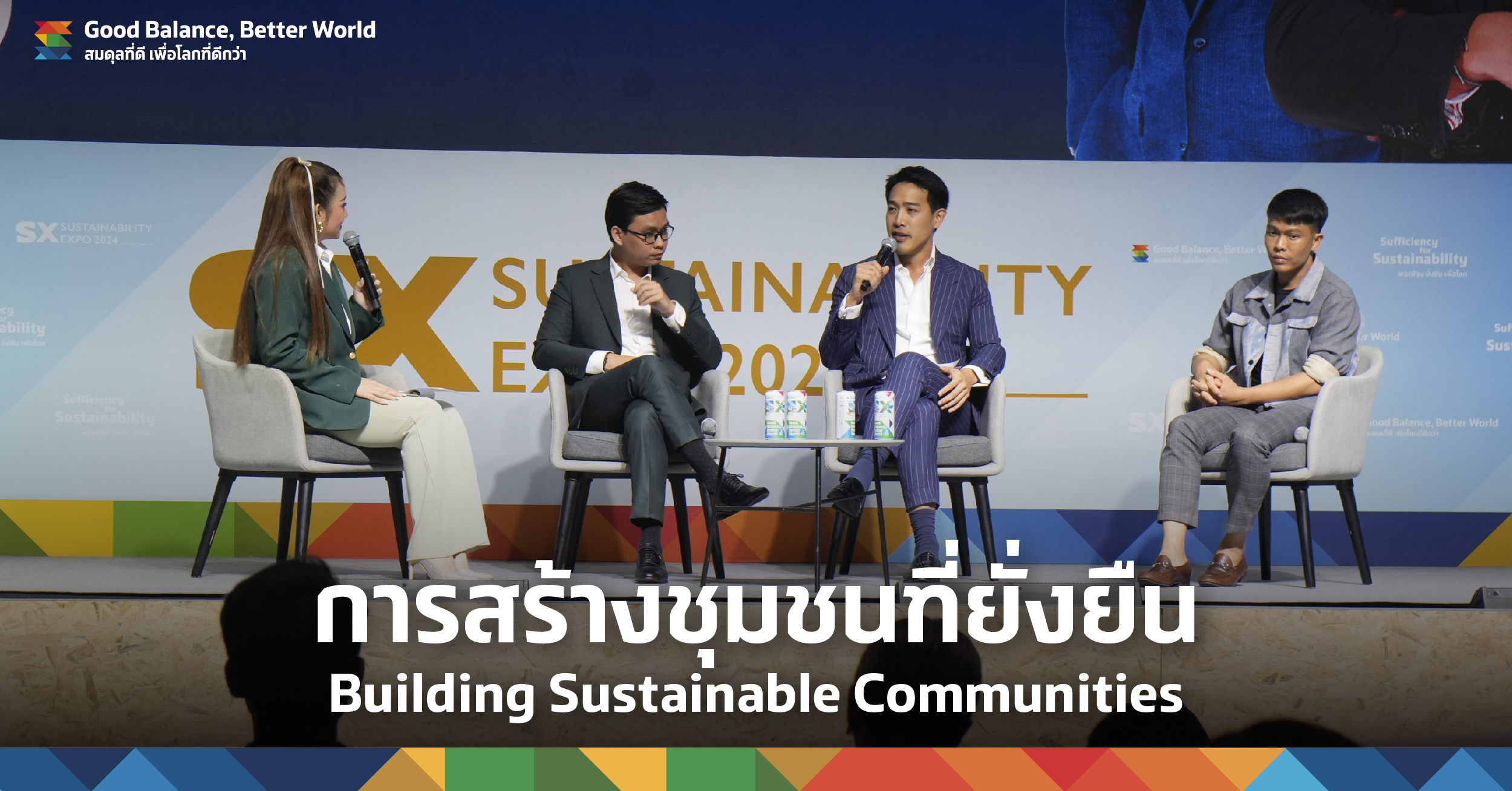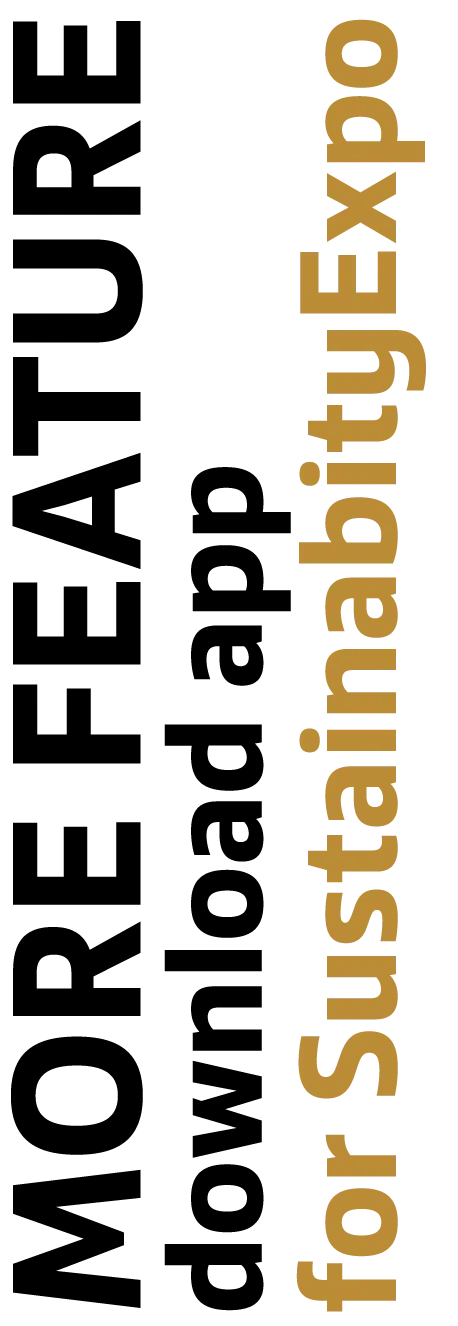At Sustainability Expo 2024, a thought-provoking panel discussion titled “Building Sustainable Communities” brought together senior executives from leading organizations to share their insights and experiences on driving business while creating long-term value for society and the environment.
The panel featured:
-
Mr. Pasu Liptapanlop, Executive Director of Proud Group
-
Mr. Piyapoom Seechang, B2B Marketing Director, Michelin Siam Co., Ltd.
-
Mr. Somsak Boonkam, Founder and CEO of Local Alike
All three panelists shared a common belief: that sustainability is not merely about business growth—it requires a deep commitment to minimizing environmental and social impact. Mr. Somsak emphasized that community-based tourism can be a powerful tool for improving the quality of life in local communities. Meanwhile, Mr. Piyapoom underscored the importance of achieving balance between People, Planet, and Profit.
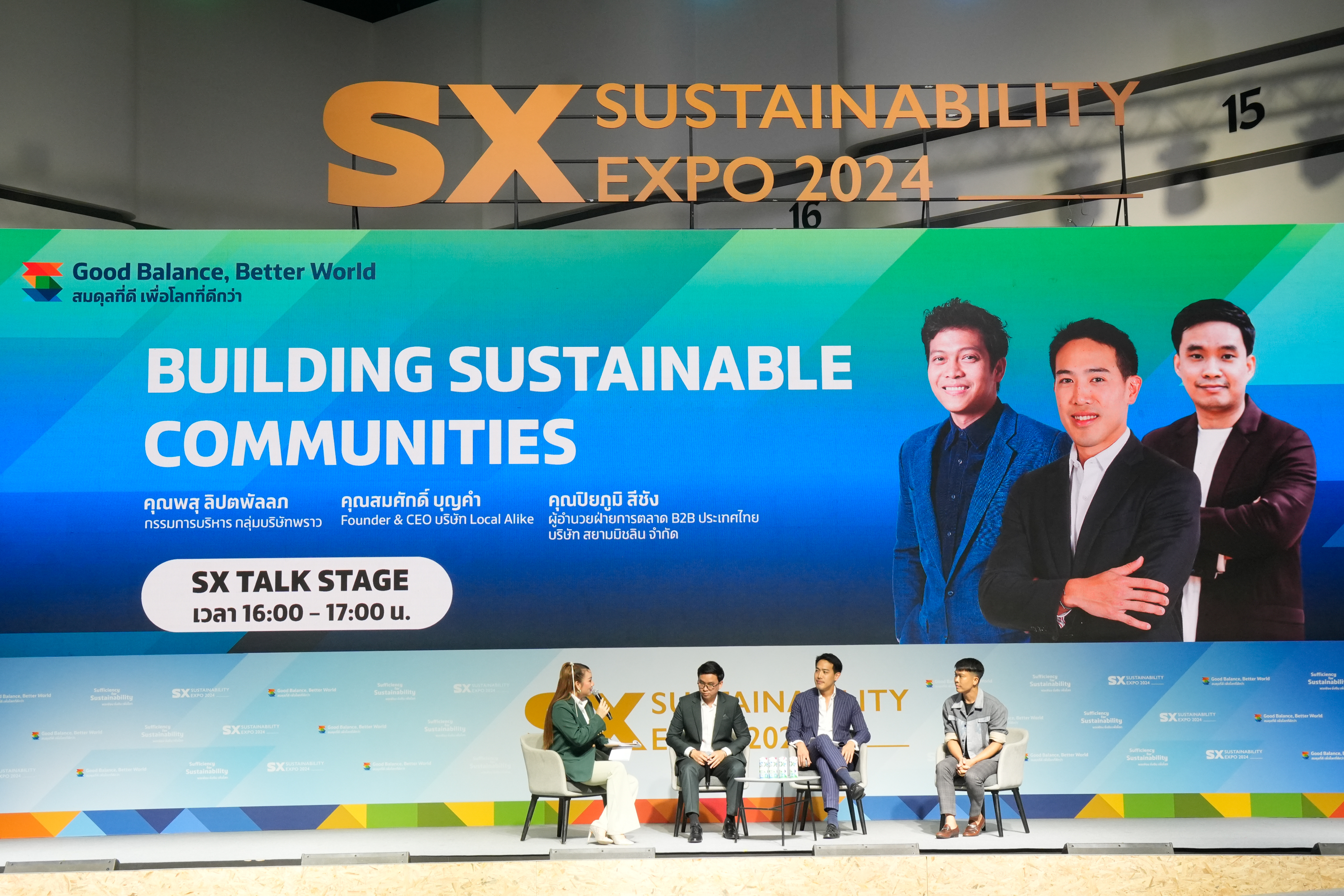
From Waste to Value: Regenerative Models
Mr. Pasu Liptapanlop highlighted Proud Group’s Regenerative Sustainability initiative, which transforms organic waste from hotels and restaurants into organic fertilizer. This fertilizer is then used on company-run farms and distributed to nearby communities. The project not only reduces waste and rehabilitates soil quality, but also minimizes the need for chemical fertilizers and provides a new income stream for local farmers.
Mr. Piyapoom Seechang shared insights from RubberWay, a project in Indonesia that educates rubber farmers on proper tapping techniques to increase yields, prevent deforestation, and help children in farming families return to school.
Mr. Somsak Boonkam discussed Local Alike’s work in promoting community-based tourism in areas such as hill-tribe villages, Khlong Toei slum communities, and rural districts in Roi Et province. The company focuses on empowering local communities to independently manage tourism activities. He also introduced plans to scale up “creative tourism,” which not only protects the environment but also actively contributes to restoring and improving it.

Education, Innovation, and Collaboration for Sustainable Futures
Looking ahead, all three organizations agreed on key drivers for future impact:
-
Education and skill development within communities
-
Technology and innovation to address environmental and social challenges
-
Cross-sector collaboration between government, business, and civil society
The panelists acknowledged tangible positive outcomes from their respective initiatives—such as cost reduction, increased efficiency, and enhanced community well-being. Yet they also noted enduring challenges, including the need for deeper community engagement, shifting consumer behavior, and fostering multi-stakeholder cooperation.
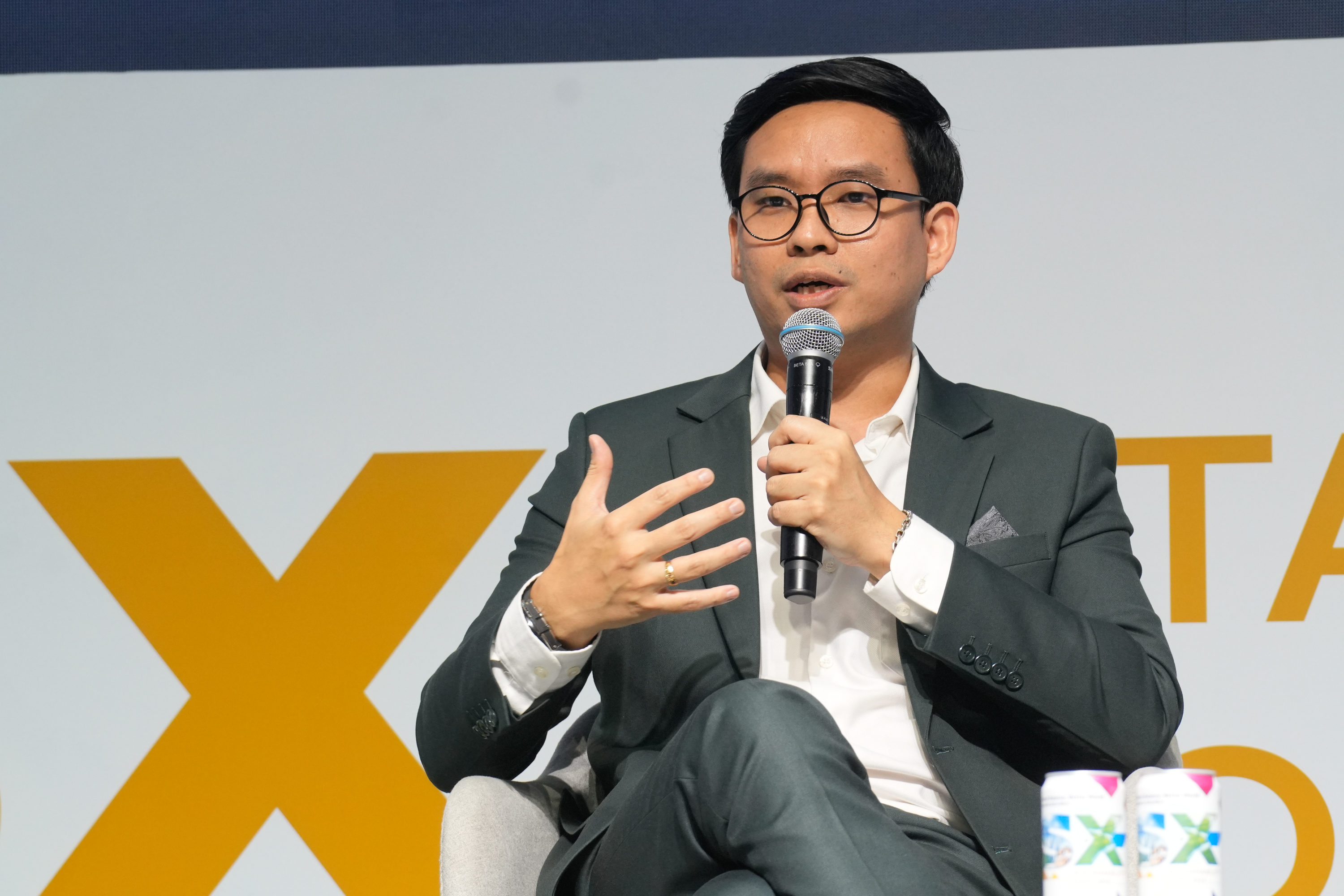
Mr. Somsak stressed that true sustainable development must be rooted in understanding the real needs of communities, and ensuring their active participation in planning and implementation.
Mr. Piyapoom pointed out the urgent need to raise consumer awareness on resource efficiency, while Mr. Pasu emphasized the critical role of strategic partnerships between public, private, and local sectors in driving systemic change.
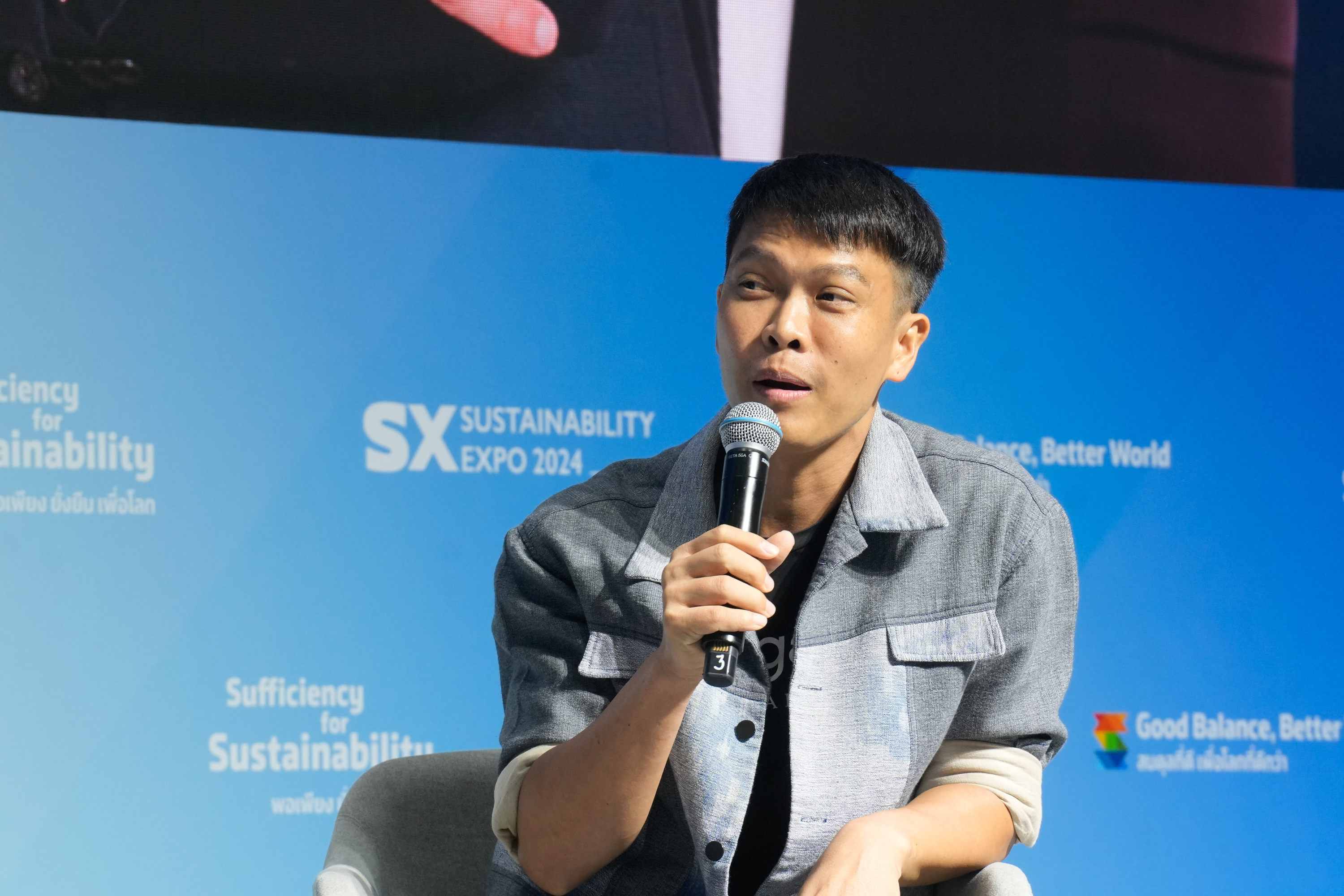
Reducing, Not Just Recycling
In envisioning a sustainable future, the panel shared several key strategies. Mr. Somsak stated, “Education is the most valuable gift we can give to communities.” He advocated for more social enterprises as a way to create meaningful, long-term solutions to environmental and social problems.
Mr. Pasu called for policy and legal reform, particularly at the local level, to support sustainable development efforts more effectively.
Mr. Piyapoom reinforced a crucial message: “Sustainability is everyone’s responsibility.” He argued that the real solution isn’t just recycling—it’s reducing consumption at the source. “The best solution isn’t to recycle, but to reduce or avoid using in the first place,” he said.
To illustrate the point, he cited the global issue of premature tire replacements—over 400 million tires are replaced too early each year, generating 36 million tons of CO₂. Encouraging consumers to use tires until they reach the safe wear limit, rather than replacing them too soon, could significantly reduce emissions. This reflects the hierarchy of sustainable consumption: Reduce, Reuse, Recycle—with “Reduce” being the top priority.
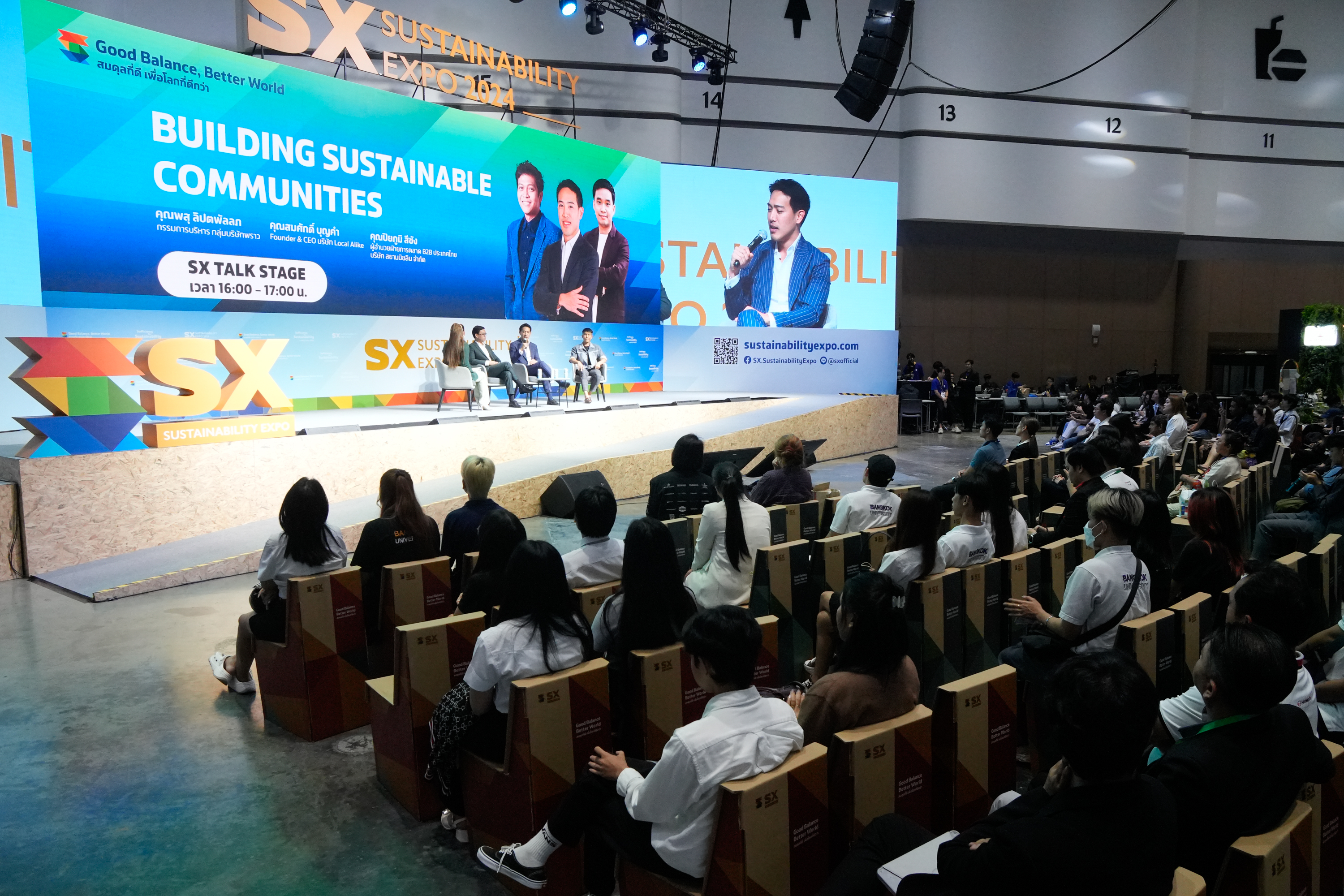
This discussion revealed that sustainability is not about sacrificing profits—it’s about creating shared value across business, society, and the environment. Core takeaways included the importance of:
-
Long-term thinking
-
Investing in people
-
Building strong networks and partnerships
-
Transforming attitudes and behaviors
-
Identifying opportunities for innovation
Stay connected with SX for more inspiration and real-world solutions via Facebook: Sustainability Expo or add us on LINE @sxofficial.
Don’t miss SX2025, returning even bigger from September 26 – October 5, 2025, at the Queen Sirikit National Convention Center. Because sustainability is everyone’s responsibility.
